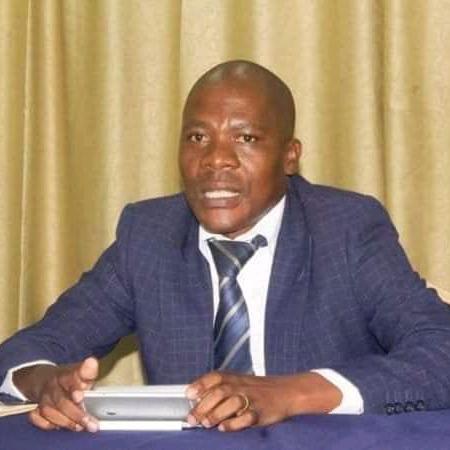By IOMMIE CHIWALO

The Centre for Democracy and Economic Development Initiatives (CDEDI) has called authorities on the need for prompt response to save lives, saying the current maize situation in the country is a fatal disaster-in-waiting.
In a statement by CDEDI Executive Director Sylvester Namiwa, like what often happens when disaster strike, the maize crisis will mostly affect vulnerable and marginalised
Malawians in both urban and rural areas, and needless loss of lives cannot be
ruled out.
Namiwa says the authorities need to address the matter with urgency it deserves considering that the country has maize that will only last two months, if it were to be supplied nationwide.
He says this is despite Parliament approving MK12 billion for buying maize, coupled with the changing of the government financial year to allow for timely procurement of the staple food.
CDEDI has also expressed serious reservations with the approach by Parliament in fighting the biting hunger saying it is selective and unsustainable.
He has since asked Leader of Opposition to facilitate tabling of the maize Bill and that Government should immediately release the NFRA maize to all Agricultural Development and Marketing Corporation selling points.
CDEDI has also given Parliament seven (7) days to deliberate and pass the maize Bill, or failure to do so will prompt us to camp at the Parliament Building in Lilongwe from Monday, August 7, 2023 until the Bill is passed, maize is made available, and its price is reduced.
In their wisdom, legislators have adopted a motion by Leader of Opposition, Kondwani Nankhumwa for government to make maize available in all the districts that were hit by Tropical Cyclone Freddy.
“Our reservations have been augmented by 91 percent of employable Malawians being jobless, coupled with the effects of cyclone Freddy, and drought in the case of Karonga, given that the Tonse Alliance administration set the minimum price of maize at MK500 a kilogramme, translating to MK25,000 per 50-kilogramme bag,
how do we expect those that lost almost everything to buy maize at that price,” queries Namiwa.
Adding that at the prevailing MK50,000 minimum wage, the majority of Malawians
can also not afford to buy the maize.
“It is time those holding positions on trust of the people, especially the Executive and the Legislative arms of government acted in the interest of their masters, notably the ultra poor,” he said.
Namiwa has given an example that Countries the world-over are obliged to provide
for their citizens who cannot provide for themselves.
The CDEDI Leader says, as it stands, it is clear that government has, therefore, no choice but to release the maize to all the parts of the country and at the same time reduce the minimum price by half.
“Similarly, a social protection mechanism should be put in place to ensure that the ultra-poor receive free food,” he suggests.
He has emphasised that there is no need to remind members on both sides of Parliament and government that majority of the population threatened with starvation are the ones that turned up enmasse to vote for them in 2019.
Instead of pressing the panic button or softening regulations on maize imports, CDEDI is imploring Parliament to immediately suspend relevant Standing Orders and come up with an emergency maize bill,” he said.
Giving it more light, Namiwa says through the said bill, government should engage Illovo and Salima sugar companies, and other largescale commercial farmers to grow maize through irrigation.
“There should also be an initiative to tap the underground water to enable prison facilities engage in irrigation farming. Likewise, those in the lakeshore districts should be provided solar pumps or canals to grow maize. Given that most Malawians are yet to adopt alternatives to maize, it is imperative to increase production of the staple food,” he said.
Namiwa never minced words by saying that the current approach to begin rationing maize today, let alone to be thinking of imports when there is acute shortage of forex in the country, more so a country blessed with fertile soils, hardworking people and fresh water bodies signifies intellectual bankruptcy.
He said the revelation that maize currently available in the country will only take the country up to October, the decision to release NFRA maize for sale is very insensitive.
“This is so bearing in mind that while the staple food is selling at about MK30, 000 per 50kg bag in the Central Region, in some parts of the Southern Region, the same bag is fetching between MK40,000 and MK60,000. Therefore, reasoning behind releasing the maize for sale is discriminatory and inconsiderate to the vulnerable and marginalized food insecure households,”
In the current sitting, Parliament resolved to have all the maize released from the National Food Reserve Agency (NFRA) for sale.
According to Namiwa, the decision by parliamentarians never give a thought on the vulnerable, especially those who lost everything to the cyclone, the jobless, those that did not harvest enough due to the chaotic Affordable Inputs Programme (AIP) compounded by the sky-rocketing fertiliser prices.

